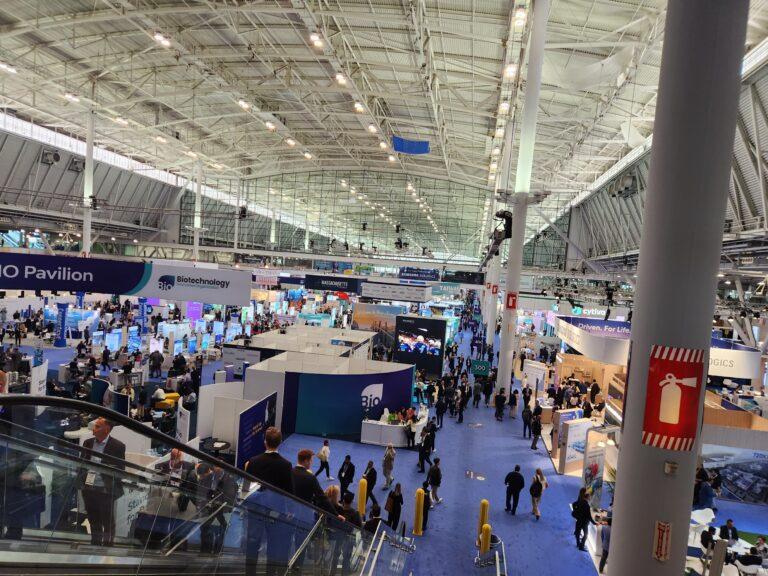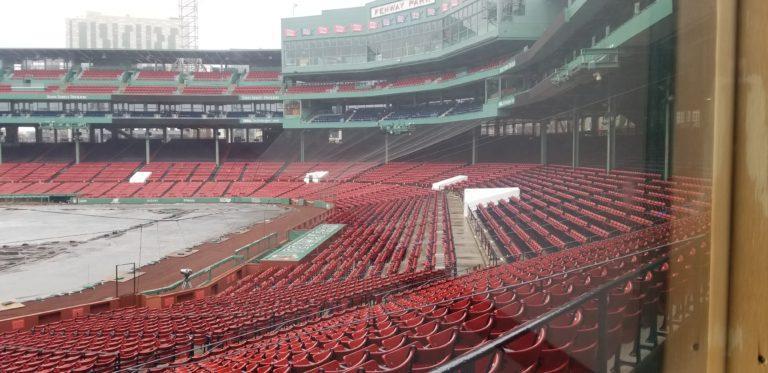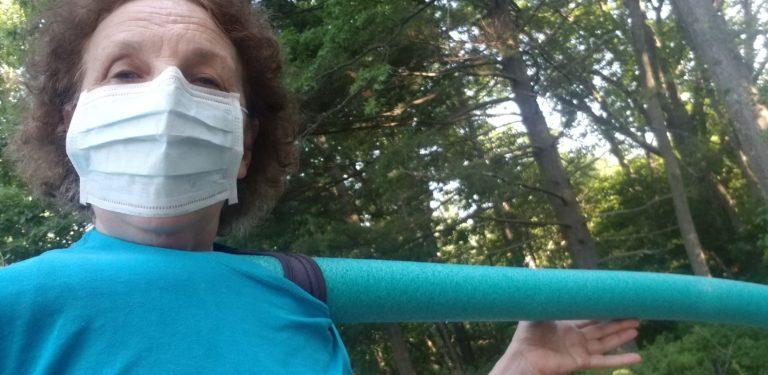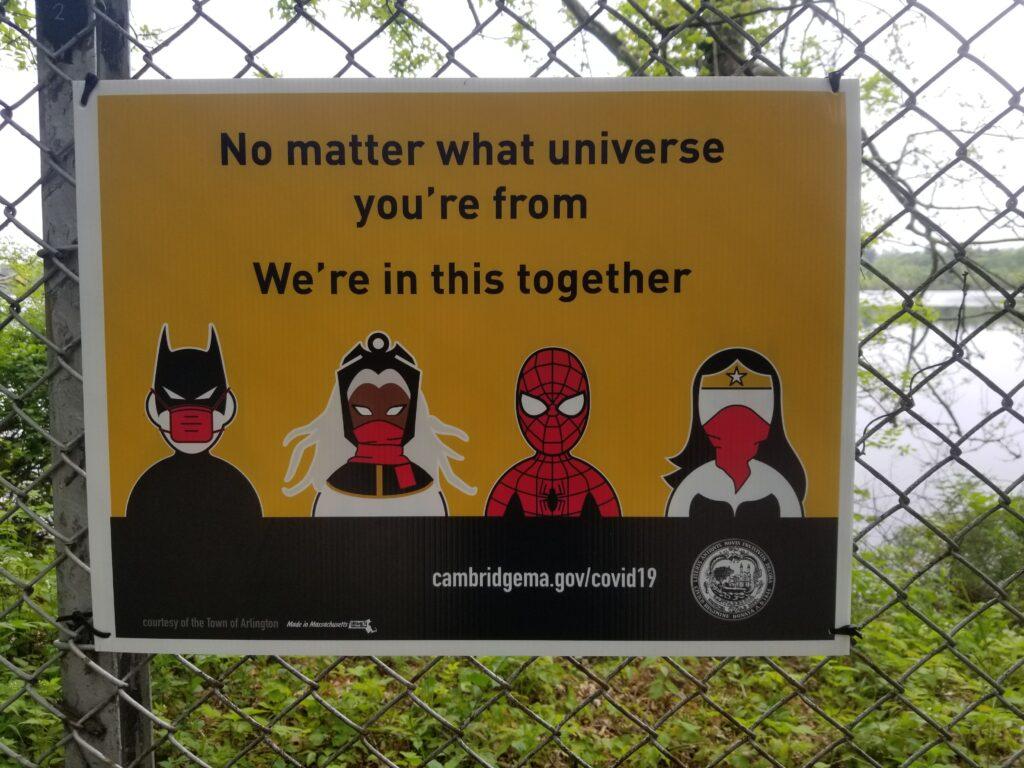
I was a Covid Virgin…until three weeks ago.
For more than three years, I’d masked, vaxed, boosted, quarantined. I once walked out of a New Hampshire restaurant where the owner refused to require masks despite a national mandate. (True confession: I also called him an idiot) I fended off Covidiots on Fresh Pond by running with a pool noodle across my shoulders, reminded folks of a $300 fine for non-maskers in Cambridge–and got cursed out for it.
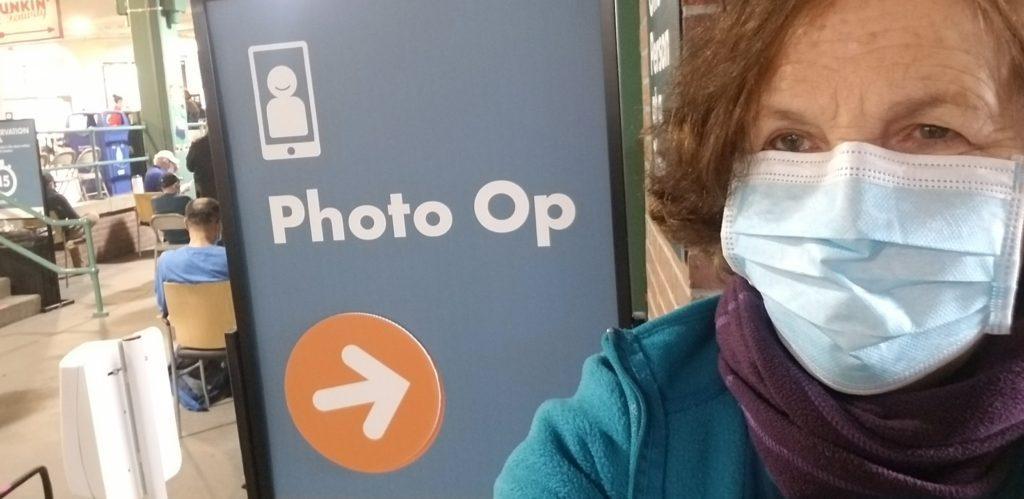
I took Covid precautions very seriously: in the early days, my friend Jim Gewirtzman had died of Covid; a therapist I know got seriously impaired by brain fog and exhaustion– until finally, she had to retire. A 32-year old friend lost his mentor to Covid, then came down with it himself. Three years later, he has episodes of exhaustion and memory loss. Millions more died or can no longer work as a result of this wily virus.
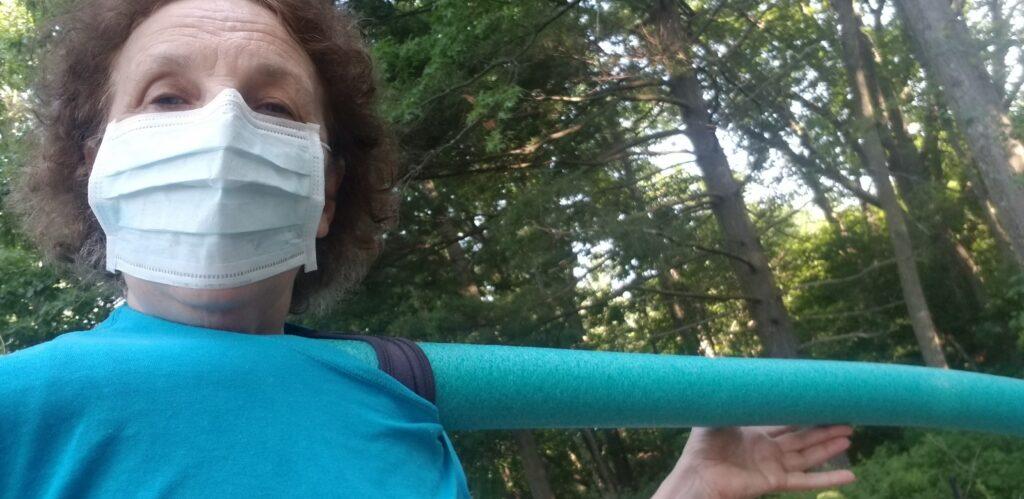
Still, by this summer, President Biden had declared the pandemic over, most folks were no longer masking or bothering to schedule booster shots. An anti-vax acquaintance told me masks did not work and mocked me for wearing one; he said he believed in herd immunity. (Under that theory, used by Sweden early in the pandemic, the weak die of the illness and the rest survive; more recent evidence has shown that with so many quickly-developing virus mutations, that strategy did not–and will not end the pandemic.)
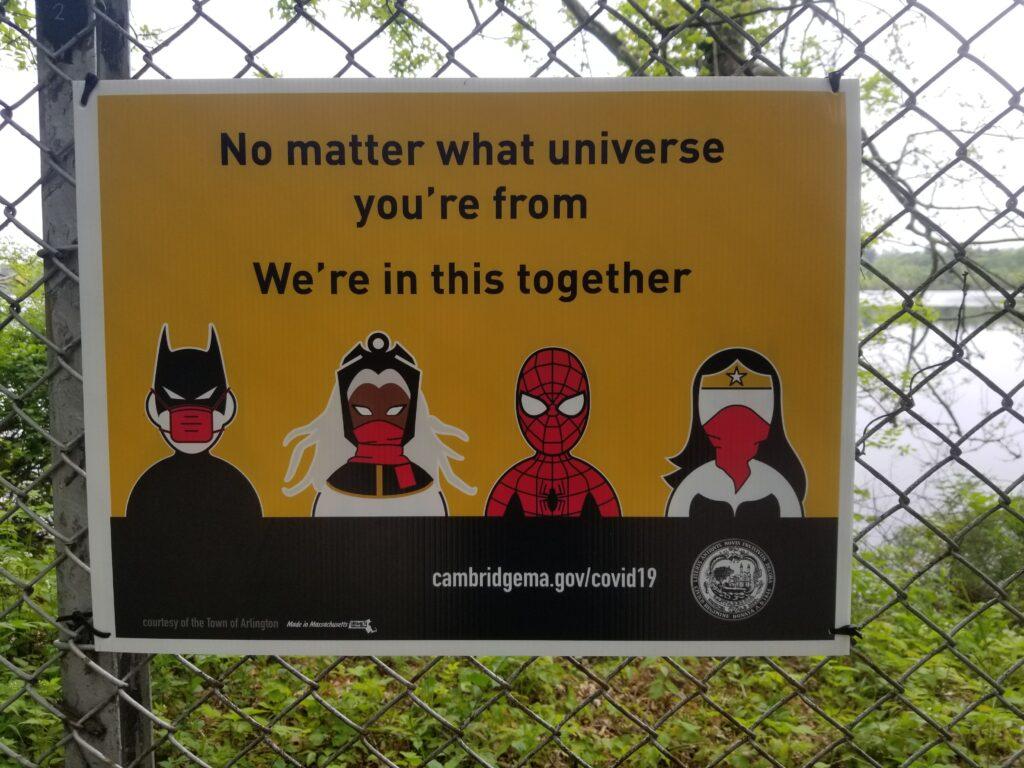
The last Sunday afternoon in August, when I hopped into Trader Joe’s to buy some wine for a picnic with my writers group. I realized I’d left my mask in the car but figured I’d only be inside for a few minutes. Three days later, after the picnic, I started sneezing but thought it was allergies. The next day, congestion built in my chest and sinuses; I decided to test just for the heck of it. Bam. Positive.
It would be 17 days until I tested negative –17 days of confusion, of not knowing how to protect myself and others due to conflicting information, uninformed medical guidance, and a lackadaisical attitude among friends and in the general public. This more than three years into Covid–and, with infections and hospitalizations rising in Cambridge and elswhere, still counting.
First, I called my doctor for Paxlovid.–the medicine said to help prevent serious illness and hospitalization. She said she’d put in a prescription and that I should ask someone pick it up for me but, living solo, I had to go myself.
Next morning, when I got to CVS at 9:30; I was the only one wearing in a mask. The pharmacy windows were shuttered, though they were supposed to open at 9; for some reason, I was told, the pharmacist had gone to the wrong CVS..not very reassuring for those seeking careful treatment. He would be there in ten minutes, a manager assured me.
Coughing into my surgical mask (I now know I should have used a more protective N95 or KN 95) I walked around the store checking for bargains, then went to the pharmacy window, waiting in line for it to open. Concerned that I might be infectious, I told people not to come near me and used my mobile phone in attempts to reach the manager to ask if there were some way they could contact me when my prescription had been filled. But each time I asked to speak the manager, the call was dropped: this happened not once, but four times. Still in line at 10:15, with no pharmacist available, I called another CVS; was told they couldn’t transfer the prescription and in any case I wasn’t to come inside.
Eventually, a CVS manager appeared near the growing pharmacy line. Alternating coughs and conversation, I explained that I was contagious and should go home; she agreed to call when the prescription was ready so I drove the mile-and-a-half back to my house. As soon as I got there, of course, she called, so I drove back, when I got to the pharmacy counter, the tech said the prescription was not ready, it would be 15 or 20 minutes…I protested, slamming my hand on the counter. The pharma tech said he would expedite it; so I hung around…probably spewing germs through my mask…for another 15 minutes. Before I left, I suggested to a clerk that someone might want to sanitize the coupon dispenser and the box of hair dye that I had touched.
Back home, I swallowed the first three Paxlovid pills as instructed and headed for the couch, where I spent most of that day coughing, sneezing and trying to work. My chest congestion deepened, making it painful to cough. As directed by the Centers for Disease Control, I spent the next few days pretty much in isolation.
Except that my cleaning person was scheduled to come on day three. I suggested postponing but she and her helper insisted they would be fine. I opened all of the windows and, when they arrived, offered masks, but the cleaners refused to wear them. “It’s not like in the past,” one said. ” Now, it’s like the flu; it’s curable; when you have the flu, you go to work.” (I wondered about going to work with the flu, and later thought perhaps I should have paid them not to come.
A neighbor also chose to visit–having already had Covid, she brought her own tea and was comfortable with our sitting on the balcony, so long as I was masked.
At some point I managed to find a number to call to report my positive test–but have no idea if that would count, or, as I was one of very few to do so, would make any difference at all.
I felt better on Day 4, and on Day 5 felt well enough to walk outside, wearing a mask. Two cousins from Chicago came by on their way to Cape Cod; we walked (only I was masked) to Fresh Pond and then for supper, outdoors, in Harvard Square. CDC guidelines said that after isolating for five days, it was unlikely that I was still contagious, so it would be fine to go out, masked, just in case. I’m not sure it was smart of me to walk 14K steps, because on Day 6, my congestion deepened, and, disappointingly, I tested positive. A friend on Facebook said he’d had something called “Covid rebound” after Paxlovid; I didn’t know what to do.
Meanwhile, First Lady Jill Biden had tested positive, but was negative after just three days. A friend who drove in to Boston from Provincetown for one night told me he’d picked up the virus—but had a light case, and within a few days was off on a trip to the opera, in New York.
But I kept testing positive and feeling miserable, for the next five days. Dr. Google said you are likely most contagious two days before and after symptoms…CDC said it was OK to go out masked after isolating for 5 days if you’ve had no fever for 24 hours…the only time I had a temperature over 98 was on day two–so I did.
On Day 6, at Henrietta’s Kitchen, no one masked. At an art opening on Day 8, no one masked. Over the next few days, behind my mask, I was coughing and sneezing, my chest was still congested, and I felt awful.
After testing positive on Sunday, Day 9, I wondered if I was having that Covid rebound, which in Covid recurs in some folks who take Paxlovid (evidently, the drug slows the growth of the virus, but doesn’t always wipe it out). I called the doctor to ask what I should do. The nurse on call said she wasn’t familiar with the latest protocols; she suggested that I stay inside, “better safe than sorry”–and that I contact my doctor the next day to request a chest x-ray.
On Day 10, the doc said my symptoms were not due to Covid rebound, which takes longer to present. They were likely caused by allergies, exacerbated by Covid. She told me to take certain over the counter pills and nasal spray, both of which made me woozy.
For five more days, I felt congested, tired, with no energy to write. A friend who called told me, “You sound like you’re under water.” I put on a mask and went to the library (no one masked); and to an art opening (only one other person masked). Finally, on Day 17, I tested negative.
On Day 20–three weeks in, I was feeling better; though still congested and tired. I found a story on NPR that suggested the label “medium” Covid. It’s different from “long Covid,” which is used to describe Covid symptoms that go on for more than a month. In “medium Covid,” the reporter suggested, symptoms last for weeks, and those who have it “are caught in a gray area of recovery with little support.” Yup, I thought.
I walked my 4k steps on the river (where, usually, I run). And, having tested negative, went unmasked to a party on the anti-vax/masker’s porch. There, a former dentist whose mother had died of Covid insisted that masks and Paxlovid do not work. A woman who had contracted Covid the same weekend I did said she’d isolated for the five days and was fine after that.
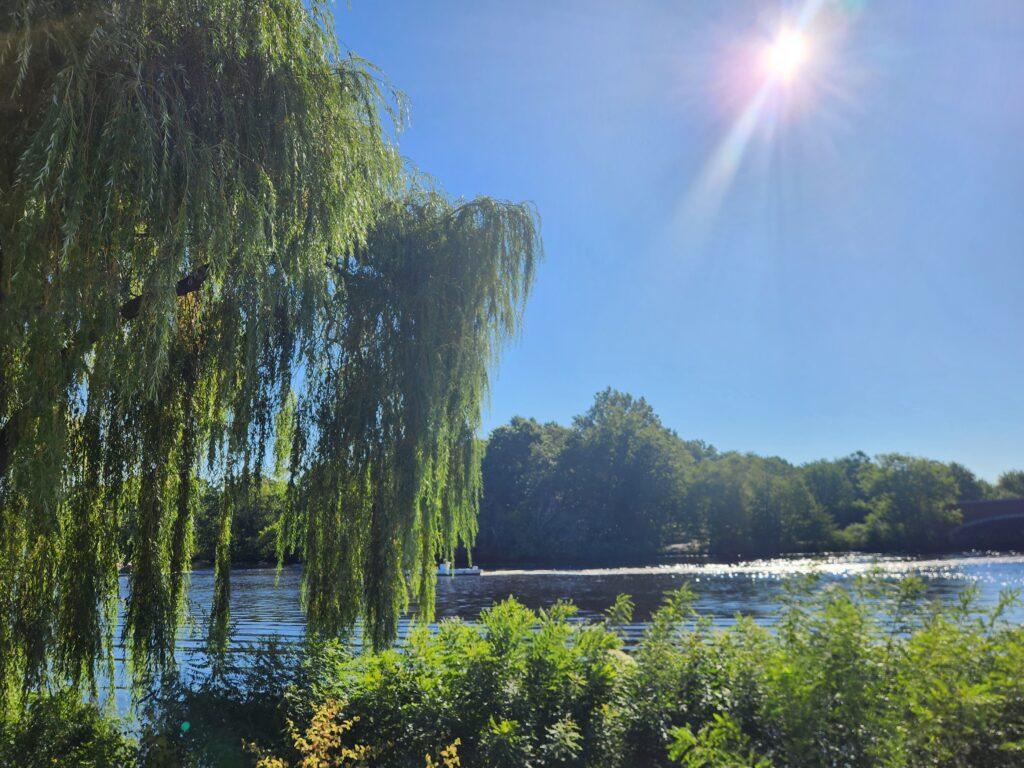
The next morning, a coffee pal at Henrietta’s who consults to international pharma companies told me he did not know if he’d ever had Covid but insisted that there’s no reason to wear a mask. (He also proclaimed that US policy of shutting down stores and schools was misguided because the disease supposedly only kills old people–and more young people have died of suicide due to isolation than have died of Covid). The bartender said that despite the current uptick in cases, he will not wear a protective mask: “If you wear a mask, people think you are sick and stay away.”
Given the vehemence and mockery with which many anti-maskers expressed their views, I wondered if I were overdoing the masking thing–and emailed to ask a renowned scientist friend who was involved in inventing the vaccines what he thought.
He responded:
I don’t think anyone knows for sure. I think it works some , but not perfectly. But one should wear k 95 ideally. Or kn 95. But it’s important to fit correctly. I always wear them in crowds or crowded places.
That settled it for me. I wrote back:
I’m concerned that there’s is so much misinformation and people are being so careless…even reckless! And ridiculing others for taking precautions.
He wrote:
I’m not sure any conclusive studies have been done. Also terrible and repeatedly inconsistent and contradictory info from the World Health Organization and the Centers for Disease Control. That said, I see no harm and I think there is definitely possible good.
So–supposedly I’m immune from Covid for three months. After that, I’ll get the latest booster (out this week) and mask in crowded spaces. I’m grateful for the vaccines, the boosters, and the medicines that have helped get this nasty illness under control. Though I was laid low for three weeks, I am very grateful not have been laid even lower–like, in a grave.
I remain concerned that after all this time, no one seems sure about what works and what does not. But given the contradictory guidance, guesswork, and nonchalance about an illness that seems to affect each of us differently, I ask, “Why not mask and vax? What do you have to lose?
–Anita M. Harris
Anita Harris is a writer, photographer and communications consultant in Cambridge, Mass. Earlier in her career, she covered health, science and technology for the “MacNeil-Lehrer Report” (now the “NewsHour” of PBS), served as public affairs director for the Harvard School of Public Health.
New Cambridge Observer is a publication of the Harris Communications Group, also in Cambridge, Mass.

